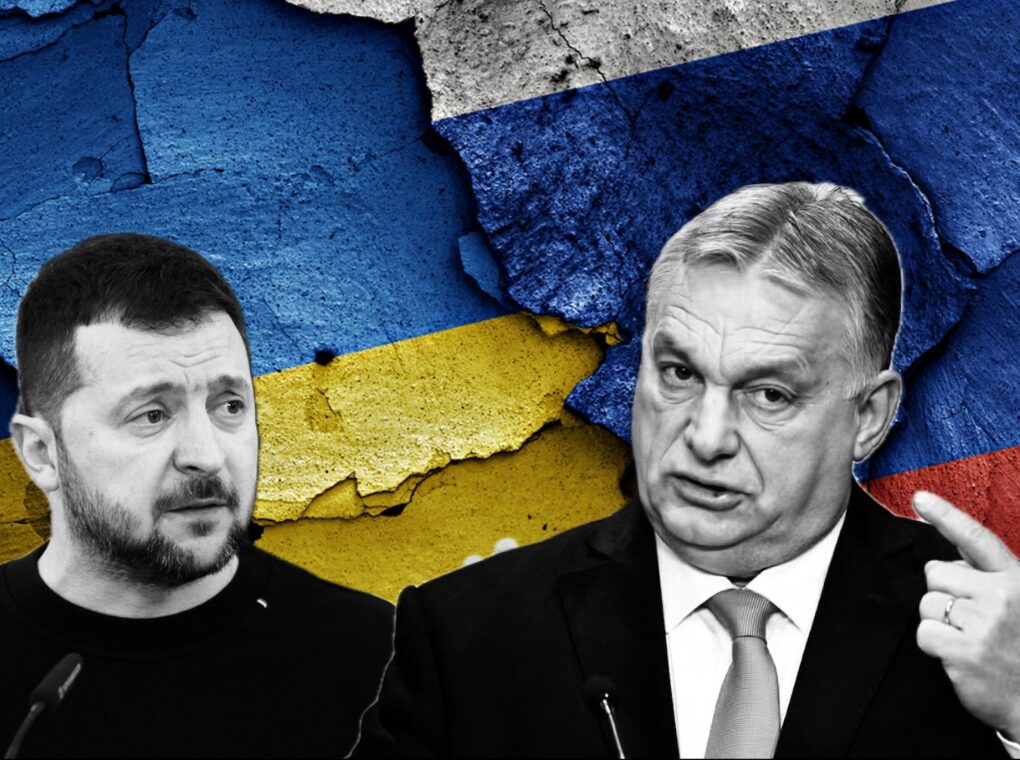Hungarian Prime Minister Viktor Orbán has sharpened his criticism of Ukrainian President Volodymyr Zelensky following recent remarks about the Druzhba oil pipeline, a key artery supplying crude oil to Hungary. Orbán accused the Ukrainian leader of making “open threats” against Hungarian energy security, warning that such tactics would not bring Kyiv any closer to European Union accession.
The Druzhba, or “Friendship,” pipeline represents one of Central Europe’s most important energy routes, connecting Russian oil supplies through Ukraine into Hungary and other EU states. For Orbán, any suggestion that its operation could be jeopardized due to political disagreements is not only unacceptable but also proof, in his words, that Budapest’s cautious stance toward Ukraine has been justified.
Orbán’s Strong Words Against “Blackmail”
Speaking to Hungarian media, Orbán minced no words in his response to Zelensky’s purported comments. “Zelensky admitted that they are hitting the Druzhba because we do not support Ukraine’s accession to the EU. This again proves that Hungarians made the right decision,” Orbán stated.
He went further to argue that Europe’s future cannot be tied to ultimatums and pressure. “Blackmail, explosions, and threats are not enough to secure EU membership,” he warned, adding that Hungary would never allow vital national infrastructure to become a bargaining chip in geopolitical disputes.
For Orbán, the episode fits into a broader narrative in which Hungary portrays itself as resisting both the escalation of the war in Ukraine and what he often labels as “reckless” EU policies. Budapest has frequently clashed with its European partners over energy sanctions, arms deliveries, and broader strategy toward Russia.
Zelensky’s Earlier Remarks on the Pipeline
Tensions escalated when Zelensky hinted that the Druzhba pipeline’s operation could be influenced by Hungary’s position on Ukraine’s EU bid. While the Ukrainian president did not explicitly announce plans to strike the pipeline, the implication was that infrastructure might be at risk if Budapest continued to block or delay Kyiv’s European ambitions.
Such a statement carries weight at a time when Ukraine, under relentless Russian bombardment, regards every diplomatic and political opening toward Europe as vital. However, tying energy transit routes to political outcomes exposes a fault line in Kyiv’s relations with Central European states, many of which remain dependent on inherited Soviet-era supply networks.
Energy Security at the Heart of Budapest’s Position
The Druzhba pipeline supplies a significant portion of Hungary’s oil needs, making it a lifeline for the country’s economy and energy security. While other EU member states have worked to diversify supplies away from Russian-origin energy since the outbreak of the war, Hungary has resisted cutting ties too quickly, citing its geographic limitations and economic vulnerabilities.
Orbán’s government has long argued that sanctions on Russian oil and gas disproportionately punish smaller Central European economies. From that perspective, any suggestion that Ukraine could directly or indirectly threaten the continuity of Druzhba flows resonates as not just a political statement but a direct challenge to Hungary’s national interest.
The Broader Context: Hungary and Ukraine at Odds
The standoff over the Druzhba pipeline is not occurring in isolation. Relations between Hungary and Ukraine have been strained for years, notably over language and minority rights affecting ethnic Hungarians in western Ukraine. Orbán’s government has frequently accused Kyiv of disregarding minority protections, while Ukraine has criticized Hungary for being too accommodating of Moscow.
Since Russia’s invasion, Budapest has walked a fine line—participating in EU decisions while carefully shielding its own energy dependencies. This balancing act has led to persistent accusations from Kyiv and other European governments that Hungary is undermining unity with its softer stance toward the Kremlin.
Implications for Ukraine’s EU Membership Path
Orbán’s latest remarks reflect Hungary’s continuing skepticism over Ukraine’s EU ambitions. While Brussels has expressed strong political support for Kyiv’s future accession, every member state must approve the move, giving Budapest important leverage.
By framing Zelensky’s alleged comments as “blackmail,” Orbán reinforces Hungary’s narrative that Ukraine is unfit for EU membership until it adopts a more cooperative and respectful diplomatic tone. From his point of view, strategic threats against energy infrastructure cross a red line that undermines Ukraine’s credibility as a potential EU partner.
A Cycle of Threats and Counter-Threats
Analysts note that Orbán’s strong language also serves domestic political purposes. By dramatizing threats from Ukraine, he projects himself as the defender of Hungarian sovereignty and household stability, particularly given the sensitive issue of energy prices. For Zelensky, meanwhile, raising the question of Druzhba may have been intended to highlight the costs of Hungary’s reluctance to support Ukraine’s EU bid, but it risks alienating a neighboring state that still plays a role in broader European policymaking.
The broader geopolitical challenge is how these kinds of rhetorical escalations risk entrenching divisions inside the EU. If Hungary and Ukraine continue openly trading accusations over energy infrastructure, the cohesion of Europe’s common response to Russia could weaken further.
A Fragile Balance in Central Europe
The clash over the Druzhba pipeline illustrates how energy infrastructure has become a powerful political weapon—and a dangerous fault line—in Central and Eastern Europe. Orbán’s rejection of what he called “blackmail and explosions” reflects not only Hungary’s deep energy dependence but also its persistent skepticism of Ukraine’s political course.F
For now, the pipeline continues to flow, but its future may depend less on engineering than on political calculations in Budapest and Kyiv. What is clear is that Orbán has drawn a hard line, while Zelensky faces the challenge of pressing Europe for closer ties without alienating the very neighbors whose support he needs most.
